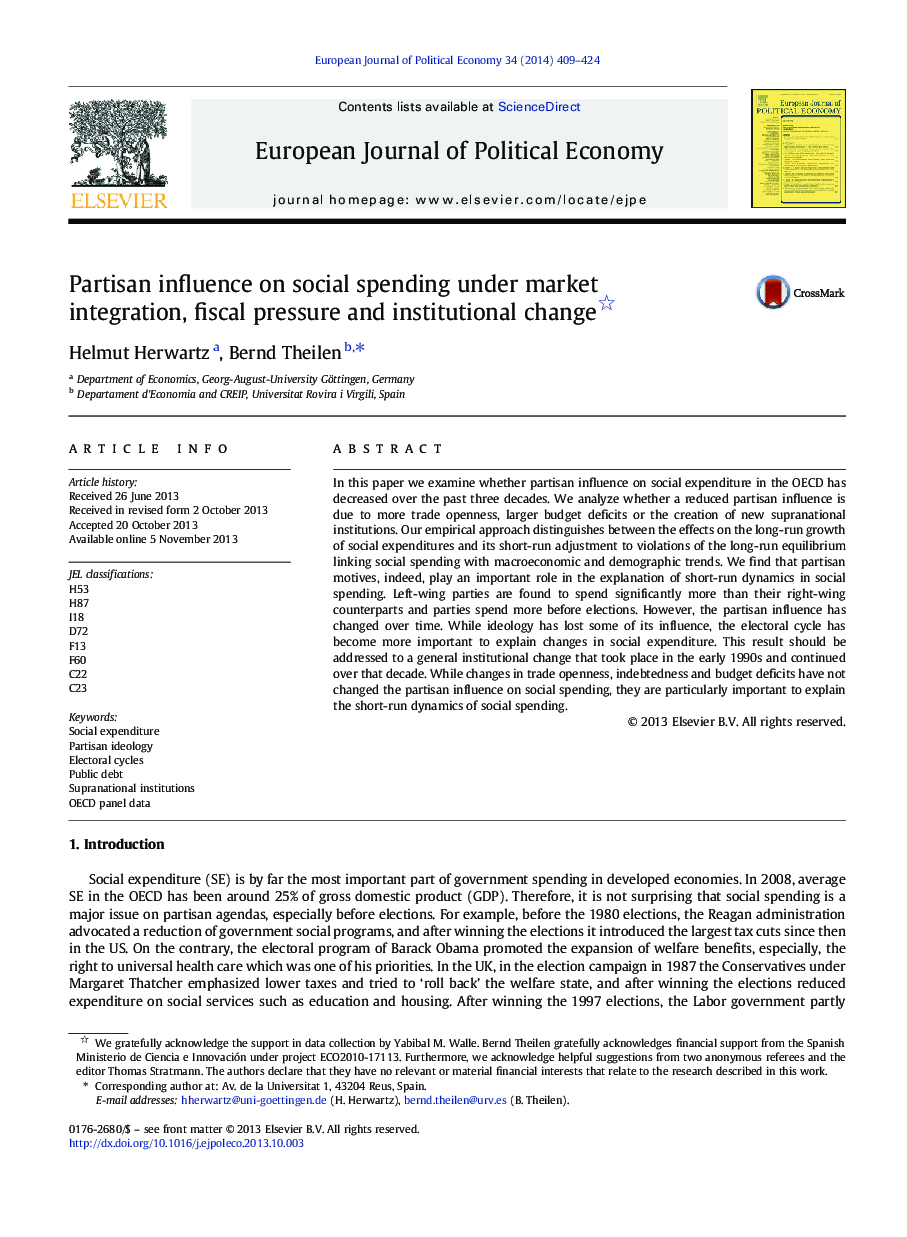| Article ID | Journal | Published Year | Pages | File Type |
|---|---|---|---|---|
| 5068112 | European Journal of Political Economy | 2014 | 16 Pages |
â¢We analyze the determinants of changes in partisan influence on social spending.â¢We account for market integration, increasing indebtedness and institutional change.â¢Ideology has lost influence in the last two decades due to institutional changes.â¢On the contrary, the electoral cycle has becomes more important.â¢Further short-run dynamics are explained by trade openness and indebtedness.
In this paper we examine whether partisan influence on social expenditure in the OECD has decreased over the past three decades. We analyze whether a reduced partisan influence is due to more trade openness, larger budget deficits or the creation of new supranational institutions. Our empirical approach distinguishes between the effects on the long-run growth of social expenditures and its short-run adjustment to violations of the long-run equilibrium linking social spending with macroeconomic and demographic trends. We find that partisan motives, indeed, play an important role in the explanation of short-run dynamics in social spending. Left-wing parties are found to spend significantly more than their right-wing counterparts and parties spend more before elections. However, the partisan influence has changed over time. While ideology has lost some of its influence, the electoral cycle has become more important to explain changes in social expenditure. This result should be addressed to a general institutional change that took place in the early 1990s and continued over that decade. While changes in trade openness, indebtedness and budget deficits have not changed the partisan influence on social spending, they are particularly important to explain the short-run dynamics of social spending.
